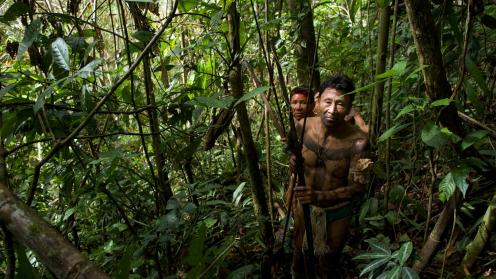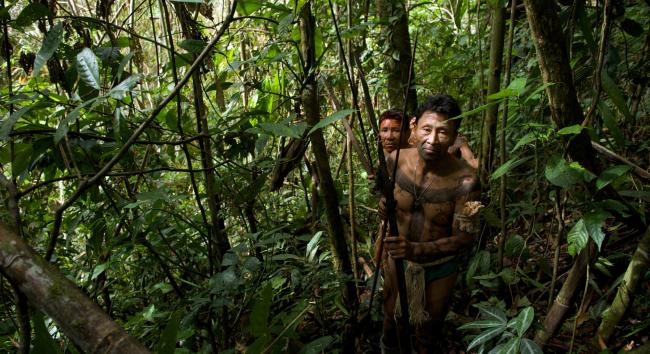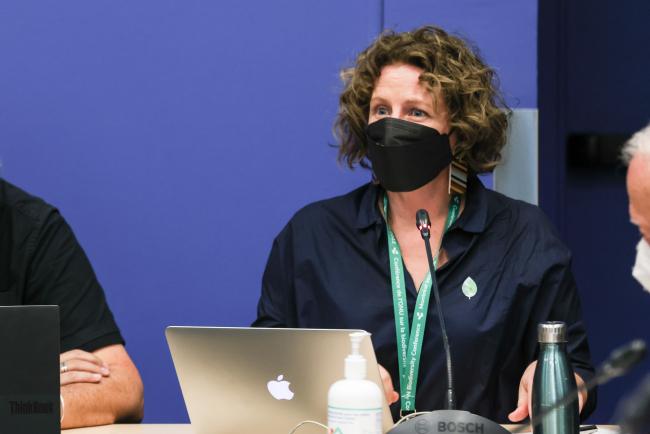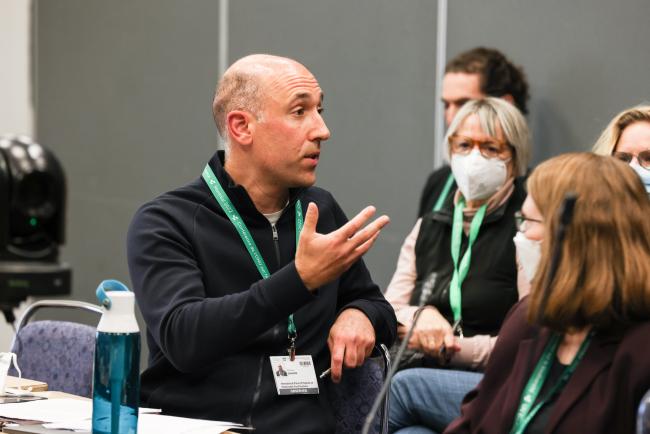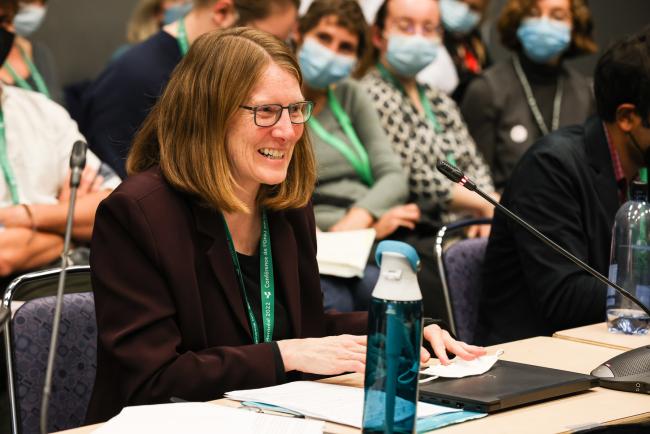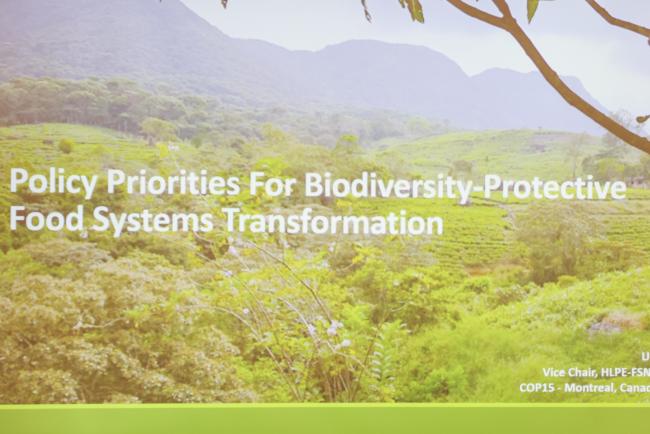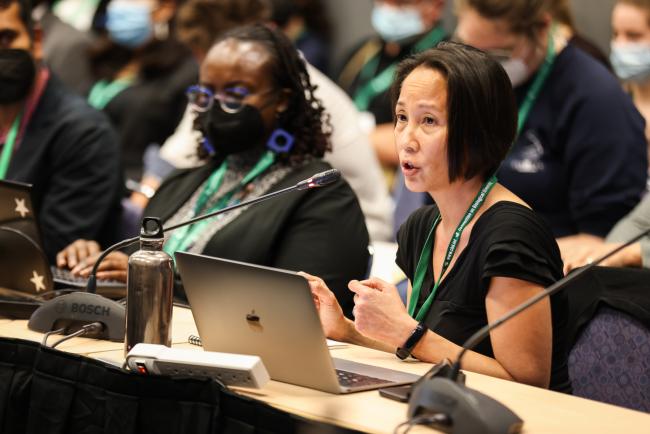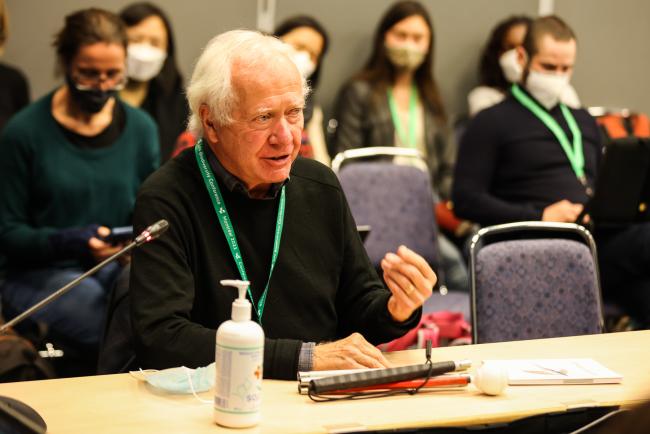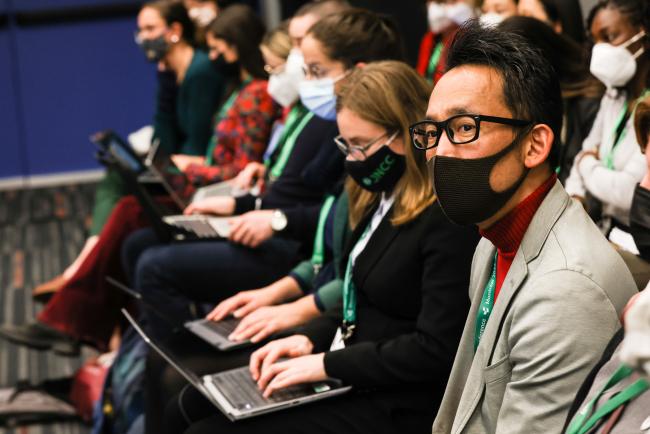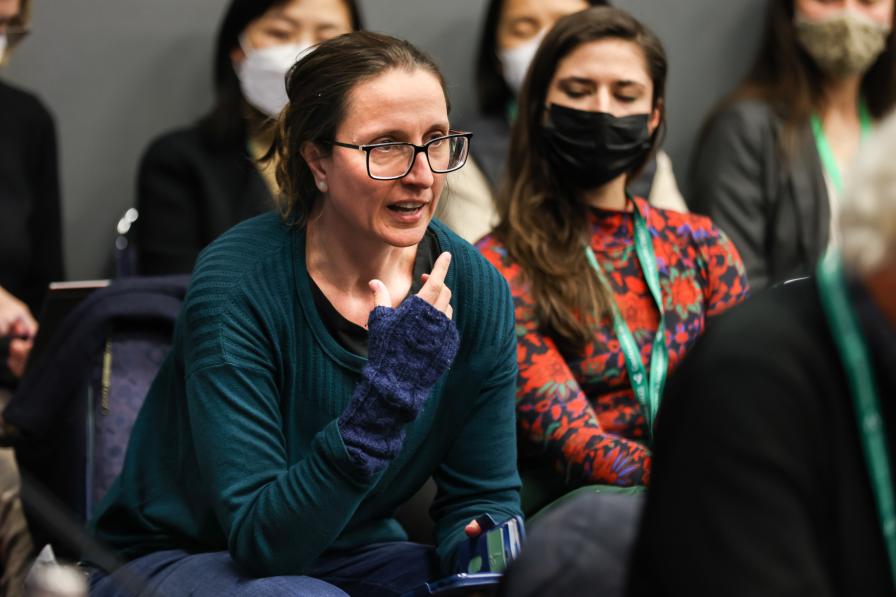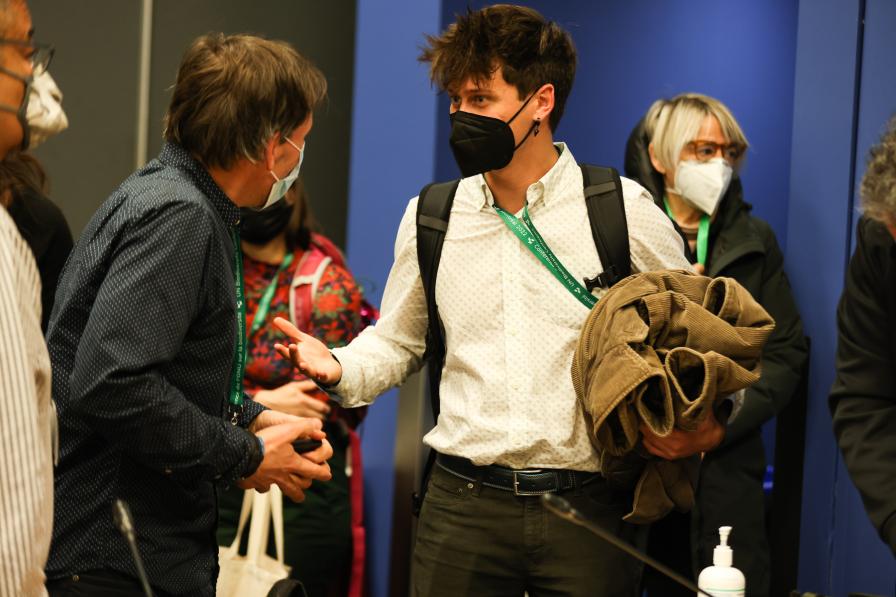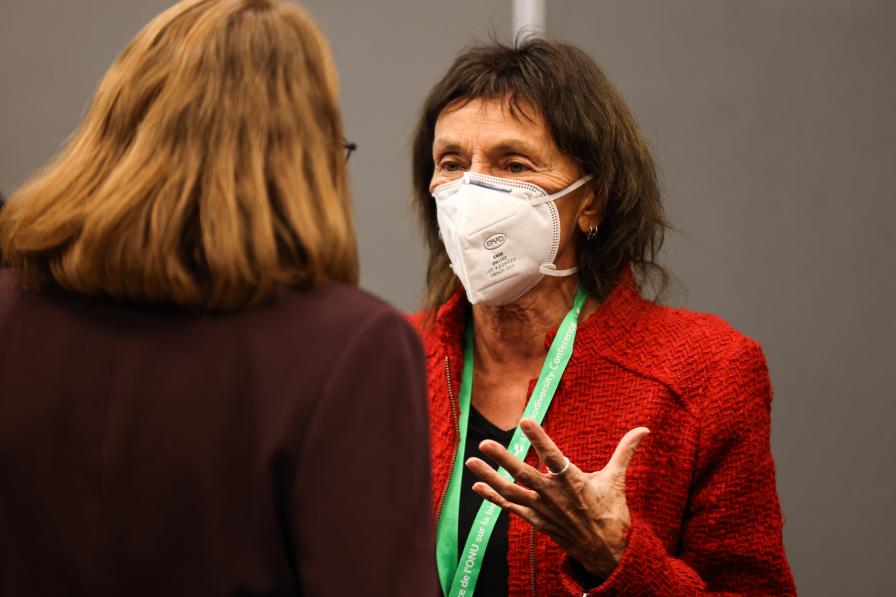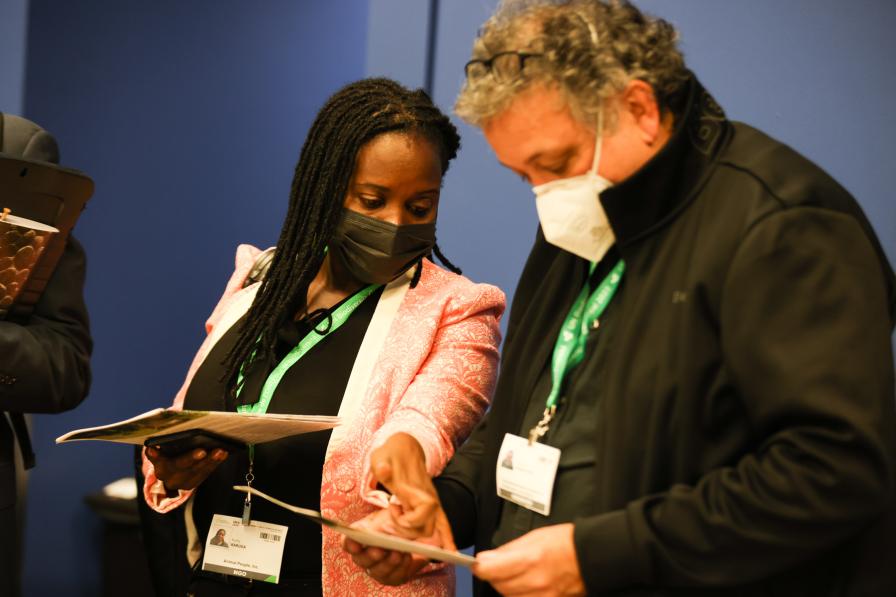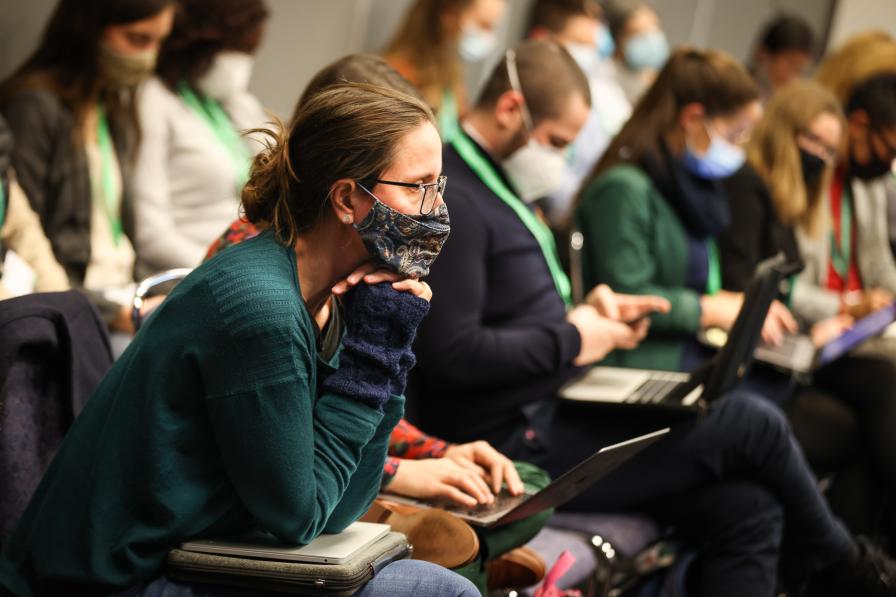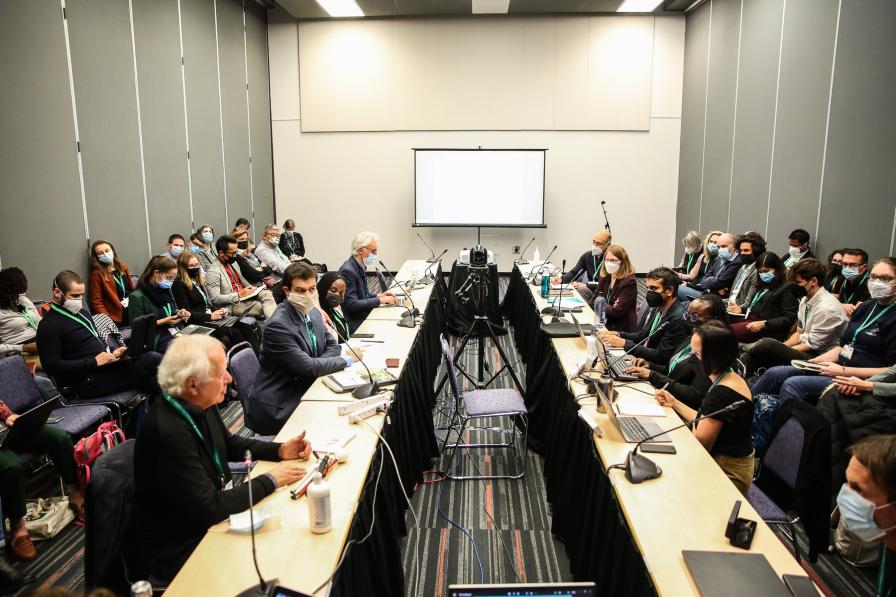About
This side event considered alternative food production systems that can produce more than enough to feed the world while working in alignment with landscapes and habitats to produce healthy, nutritious, and culturally appropriate food.
Industrial agriculture imposes a singular vision of the food production landscape around the world and advances biodiversity loss. This was the focus of a side event, organized by the International Panel of Experts on Sustainable Food Systems (IPES-Food) and moderated by Lauren Baker, Global Alliance for the Future of Food. The event brought together social scientists in the field of food studies who also considered alternative food production systems that can produce more than enough to feed the world while working in alignment with landscapes and habitats to produce healthy, nutritious, and culturally appropriate food.
Haroon Akram-Lodhi, Trent University, noted that Inger Andersen, Executive Director, UN Environment Programme, had opened the fifteenth meeting of the Conference of the Parties to the Convention on Biological Diversity (CBD COP 15), underlining that the COP would need to address the “five horsemen of the biodiversity apocalypse” (changing land and sea use, species over-exploitation, climate change, pollution, and invasive species). Stressing that industrial agriculture alone has been the identified threat of 24,000 out of the 28,000 species at risk of extinction and putting 86% of biodiversity at risk, he drew linkages between industrial agriculture, deforestation, land-use conversion, climate change, and pollution. On the effectiveness of the existing methodology, Akram-Lodhi said the current industrial food systems are a disaster for human health (with 60% of people malnourished in some way) and wreak havoc on the environment.
Tony Weis, Western University, discussed the impact of expansive industrial livestock operations and their harmful impacts on biodiversity, in what he called “meatification.” He underscored that the “meatification” of diets has meant a near doubling of meat consumption within a few generations, marked by significant disparities between high- and low-income countries. He noted how the dramatic increase in biomass of a handful of farmed animals occupies “far more land than any other human activity.” He concluded with the need to consider the production systems that constitute the “violent narrowing of animal life,” which risks amplifying the threat of wild disease propagation in addition to biodiversity loss.
Matthew Schnurr, Dalhousie University, presented on the implications of agricultural technology for genetic biodiversity. He shared that the colonial enterprise to transform traditional practices to monocultures have undermined crop resilience and destabilized ecosystems and the whole food system itself. He suggested broadening the discussion on what counts as technology, noting technologies exist that do not narrow the crop variety base, stressing that innovations should be prioritized over new technologies. He also called for focusing on yield stability over yield maximization, with the latter being the genesis of a plethora of new vulnerabilities within a single crop. He proposed restoring farmers to their place as the “pilots” of farming systems, underlining that industrial farming models disempower farmers and undermine global food systems.
Jennifer Clapp, University of Waterloo, discussed policy priorities for biodiversity-protective food systems, reminding participants of the global food crisis as a result of the COVID-19 pandemic and the war in Ukraine, and how government responses have been to “ramp up” industrial food production, resulting in further ecological destruction. She noted the need to widen an understanding of what food security means, including by strengthening the rights and capabilities of small-holder farmers to feed themselves with dignity and to shape and govern their own food systems. She stressed the need to promote diverse food systems with a focus on agroecology that produces nutritious and plentiful food that both enhances biodiversity and includes participation and empowering those who are already the stewards of agricultural ecology. Finally, she underscored the importance of improving international governance coordination at the science-policy level.
Lim Li Ching, Third World Network, related the discussions to the COP 15 negotiations, noting the potential to tackle industrial food systems in the post-2020 global biodiversity framework (GBF), including in Target 15 (responsibility of governments to ensure the accountability of corporations to comply with their legal liability and redress for loss and damage to biodiversity). She also called attention to Target 7 (reducing pollution) to phase out synthetic pesticides, stressing that “if solutions are proposed by the very corporations responsible for biodiversity, we are going down the wrong path.” She underscored the urgent need to protect the rights of smallholder producers, Indigenous Peoples and women, and said this can be done by strengthening and adopting the UN Declaration on the Rights of Peasants (UNDROP). She reminded participants of the centrality of equity to the CBD, noting recent scientific research attributing “the overwhelming responsibility of global ecological breakdown” to high-income nations which need to pay their own “ecological debt to the rest of the world.”
In the ensuing discussion, participants identified, inter alia: the need to reduce corporate control of technology platforms that impact on biodiversity, climate, and agriculture; and the need for reparations that address the debt that industrial agricultural enterprises already owe for the historical damage they have generated.
Organizers: IPES-Food
Contact: Haroon Akram-Lodhi haroonakramlodhi@trentu.ca
For more information: https://www.cbd.int/side-events/4430
All ENB photos are free to use with attribution. For this event, please use: Photo by IISD/ENB | Natalia Mroz
To receive free coverage of global environmental events delivered to your inbox, subscribe to the ENB Update newsletter.
